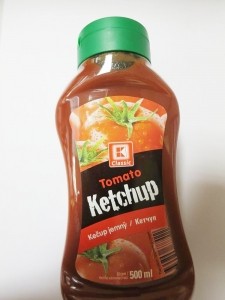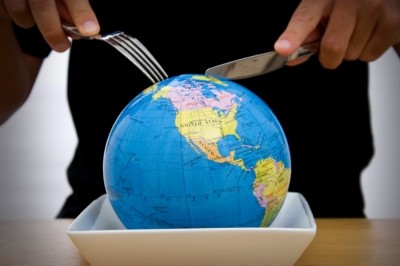Botulism increases in Ukraine and Salmonella up in Lithuania

The fourth of this series takes us to Ukraine, Lithuania, Czech Republic, Colombia and Mexico.
An increase in botulism cases has been seen in Ukraine with the majority associated with home-prepared or commercially available dried fish.
More than 75 cases have been reported within three months and eight people have died.
An antitoxin was sourced by the United Nations Development Program and manufactured in Canada. There was no botulism antitoxins registered in Ukraine since 2014.
Ulana Suprun, minister of health, said the delivery of anti-botulism serum will allow dozens of patients to be saved.
“I also encourage Ukrainians to protect their health and not to consume food of arguable quality, since it is much better to prevent the disease than to treat the heavy consequences.”
Janthomas Hiemstra, UNDP country director, said as a long-standing partner in medicine procurement it offered to help in the crisis.
“Our expertise in medicine procurement has allowed us to source high quality botulism anti-toxins quickly and efficiently and we stand ready to continue our support to the people of Ukraine in their efforts to make sure that life-saving medicines are available at all times, at best quality and lowest possible cost.”
Salmonella in Lithuania
Užkrečiamųjų ligų ir AIDS centro (ULAC) in Lithuania has said Salmonella cases in the first half of the year have increased by 23%.
This year 454 cases of salmonellosis were registered compared to 373 in the same period in 2016.
The agency said the main factors are chicken eggs, broiler meat and related products.
The Nacionalinio visuomenės sveikatos centro (NVSC) reported an outbreak of Salmonella in the first week of July that sickened eight people in Kaunas.
It was linked to Tiramisu from a confectionery company in Kaunas.
Enterohemorrhagic E. coli (EHEC) infection has been confirmed in five infants in Rodeneck, Italy including four cases of haemolytic-uraemic syndrome (HUS).
The transmission of the pathogen is predominantly via contaminated food or tainted water.
Firms hit with false food safety accusations
Alpura, a Mexican dairy company with 45 years of experience, said false information has been circulating on social networks that its milk contains Salmonella.
The firm added the incorrect message had also affected brands in other countries.
Instituto Nacional de Vigilancia de Medicamentos y Alimentos (Invima) has said after analyzing a complaint on hake marketed by Hico Fish SAS there is no evidence the product ‘presents alterations in its natural composition’ or is "composed of synthetic substances (foam)", as mentioned in the complaint and in a video on social networks.
Analysis included physicochemical characteristics including determination of moisture, lipid profile / fatty acids, total fat, calcium, iron and magnesium and protein content and differential scanning calorimetry (DSC) and Fourier transform infrared spectroscopy (FTIR).
Hungarian action
Nemzeti Adó- és Vámhivatal (NAV) and Nemzeti Élelmiszerlánc-biztonsági Hivatal (NÉBIH) found analytical problems with three of 20 alcoholic product samples tested during a control in Hungary.
During the campaign, 169 alcoholic beverages were blocked by supervisors.
In 17 out of 235 measurements, there was a ‘significant difference’ between the alcohol content of the beverage and the actual alcoholic strength.
Sándor Fazekas, Hungarian Minister of Agriculture, has said it is important for the majority of foods to be produced by Hungarian industry using ingredients cultivated by Hungarian agriculture.
“The Government’s twenty-point food safety action plan serves the interests of the Hungarian people and facilitates the improvement of food quality, the development of consumer consciousness and the increased efficiency of the activities of the food safety authority,” he said.
“Investigations and spot checks by the food safety authority will be expanded, and support will be provided for the promotion of voluntary instruments and trademarks that enable differentiation between food products.”
Another task is introduction of an S-QR code trademark which enables information to be collected using computer equipment.
When the tomato failed to ketchup
Státní zemědělská a potravinářská inspekce (SZPI) ordered Lidl Česká republika to withdraw ‘Kania Curry Ketchup Mild’ of date April 28, 2018.
Laboratory analysis of ketchup confirmed a lower content of tomatoes than what is required for foods marked as ketchup. The proportion of tomato dry matter must be at least 7% for ketchup but the analysis found only a 3.5% share.
Previously, Kaufland Česká republika was told by SZPI to withdraw K Classic Tomato Ketchup 500ml with date 20-3-2018 sold under its own brand that had a lower content of tomatoes.
The manufacturer said: "100g of ketchup is made from 205g of tomatoes" but analysis confirmed the presence of tomatoes only in 152g per 100g of ketchup.
The investigation revealed the size of the non-compliant batch was 14,112 units.
Seized products
Bolivian authorities have found 712 tonnes of different brands of flour (Estupenda, Buena Espiga, San Gabriel, Viada).
Servicio Nacional de Sanidad Agropecuaria e Inocuidad Alimentaria (SENASAG) said the intervention was at a warehouse in the town of Villazón.
The site does not meet the minimum conditions to operate and is not registered, added the agency.
There were four importers who used the warehouse illegally and were punished with a fine of 4,000 bolivianos (€490) and a seven-day suspension.
The Autoridade de Segurança Alimentar e Económica (ASAE) in Portugal has seized about 3,100 liters of wine for brand imitation.
The investigation resulted in the seizure of 3,101L of wine in "Bag in box" and 134 empty containers for imitating the brand through an image which the agency said was a ‘well-known and respected wine brand on the national market’.
























